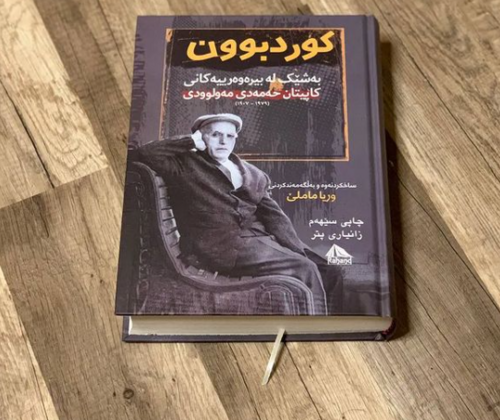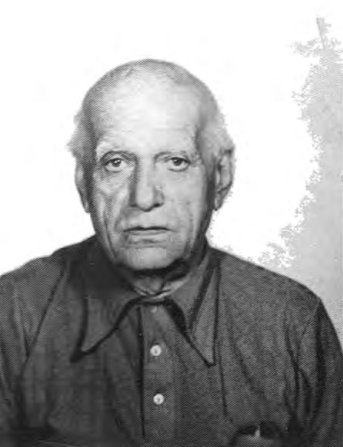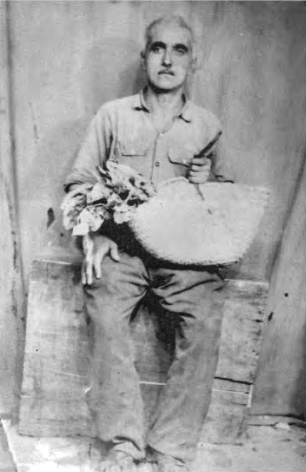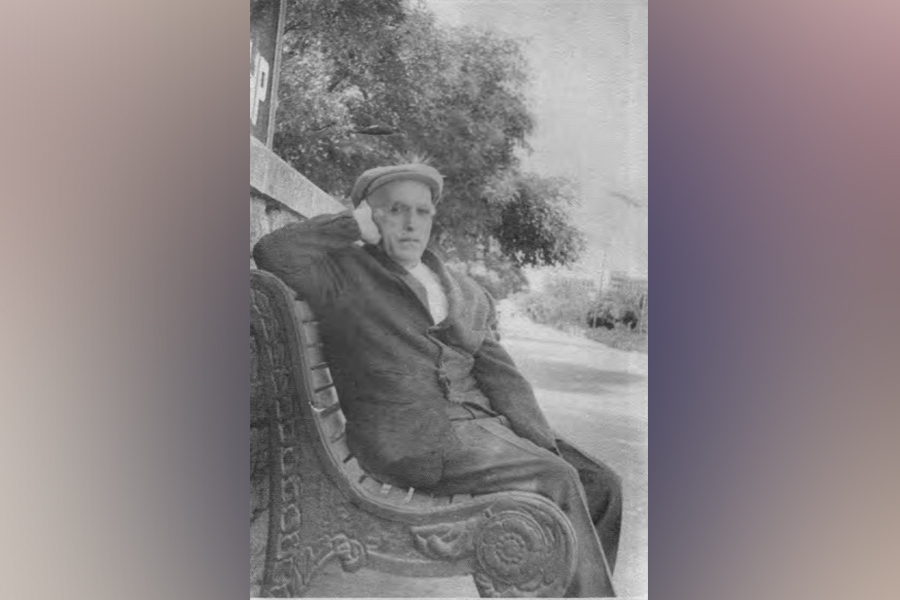In libraries, sometimes we see books that have a positive or negative impact on us, and some books increase people's feelings of nationalism. Some books disgust people with humanity and the nature of life. Once I was with some friends. They asked me, "Have you read the book To be a Kurd?" I replied, "What book is it?" "The memories of Captain Mohammad Mawludi," they said.
They described the book and I was interested in it and got it finally and started reading it. In fact, the points I have written above about reading books are all reflected in this book and lead to poverty, displacement, imprisonment, slavery, nobility and subjection, self-confidence, nationalism, opposition, etc. Captain Mohammad Mawludi's memoirs have been published titled "To be a Kurd".

Compiling this book has not been easy, and Wirya Mamle, the son of Mohammad Mamle, the great singer from Mahabad, has taken the responsibility of collecting and documenting this book. Obviously, he used dozens of sources, which indicates the richness of the book and Wirya Mamle's efforts.
Wirya Mamle has used the writings of Captain Mohammad Mawludi and mentions them in the introduction to the book:
“After being a hero in the Kurdistan Republic and then leaving the country and taking refuge in Azerbaijan, Captain Mohammad Mawludi settled there and married a girl named Balabaji, and the child of this marriage was a daughter named Yay Ronak. She had only a box from his father (Captain Mohammed) as an inheritance and some tools such as binoculars, a gun, and some other tools and four notebooks. In 2017, Yay Ronak's son opened the box and found the notebooks. He took a picture of them and sent it to a relative in Mahabad, who read it and realized that it was the manuscript of Captain Mohammad Mawludi and his memories during the Kurdistan Republic. He immediately sends them to me (Wirya Mamle).
Mr. Wirya Mamle worked a lot on these manuscripts and as a result, collected them and published a book called To Be a Kurd (a part of the memoirs of Captain Mohammad Mawludi) using dozens of sources and using them. Mr. Wirya Mamle's efforts are appreciated.
Captain Mohammad Mawludi had another wife, Khurshid Rahbari, and they had a son and two daughters.

In this book, Captain Mohammad Mawludi talks about his life full of successes, failures, resurrections, displacement, etc. He was born on April 15, 1907, in Mahabad, East part of Kurdistan. His mother's name was Zulaykha and his father's name was Sophi Mawlud Chirchi. When he was four days old, his mother died and, as he mentioned in his memoirs, his mother was poisoned by his stepmother. Like his mother, he began his life as an orphan under the care of his cruel stepmother and father.
The story of Captain Mohammad Mawludi is very sad and teaches many ups and downs, failures, and successes. However, in this article I will try to write a summary of the heroism and position of Captain Mohammad Mawludi during the Kurdistan Republic, using the book "To Be a Kurd":
With a group of youth of his time, he founded the first modern party in the eastern part of Kurdistan, the Kurdistan Freedom Party (1938). He was the ninth member of the party. Then with little changes, the name of the party changed to "the Society for the Revival of Kurdistan" and finally changed to "the Kurdistan Democratic Party" (now known as the Kurdistan Democratic Party of Iran). He was one of the heroic pioneers of the Kurdistan Republic and in less than a year, he became the head of the police municipality of Mahabad by order of Peshawar Qazi Mohammad. He was responsible for the security of Mahabad. In the Kurdistan Republic, he was given the rank of captain by Peshawa.

He and his Peshmerga comrades participated in most of the battles against the invaders of Kurdistan from Saqqez to Sardasht and Urmia and made a golden history for himself. After the fall of the Kurdistan Republic, they did not surrender with their Peshmergas and fought against the Iranian Imperial Army until the last bullet.
He then went to Iraq with the heroic officers of the Kurdistan Republic, who were from the southern part of Kurdistan. After much difficulty, he was detained there for two years.
There, the Iranian monarchy did not give up and asked Iraq to hand over Captain Mohammad to Iran, and as he said in his memoir (To Be a Kurd), Iran's regime wanted to hang him. However, he was released from prison with the help of the Kurdish people of the southern part of Kurdistan and after a while, he reached the village of Khalan in the southern part of Kurdistan. After a while, he went to Sheikh Alaaddin Naqshbandi. Later, he secretly went back to Mahabad and wanted to start another uprising against the occupation, but unfortunately, the pressure of the monarchy increased and he could not look any further and decided to go to the Soviet Union with the help of Barzani.
He was arrested on the Aras River when going to the Soviet Union and imprisoned on charges of spying for Russia. He spent two years in a Siberia prison in Azerbaijan. After Stalin's death, they discovered that he was not a spy and released him. He was granted asylum and settled there.
According to the book "To Be a Kurd", Captain Mohammad Mawludi was watching television with his daughter Yay Ronak one day, and he saw that the Iranian Revolution in 1979 had succeeded in Iran and the monarchy had fallen. He is happy to see his country again and to visit his wife and children in Mahabad.

“One day, my father was preparing to visit the East part of Kurdistan. He was in his room the night before his travel and was very happy to see his country again until he was healthy,” says Yay Ronak (daughter of Captain Mohammad in Baku). He was excited and moving a lot, so I stayed with him until midnight. He told me to take him to Baku early tomorrow morning. When early morning, I went to him, he did not open the door. I checked in the window, and I saw he was ready and sitting on the furniture. Although I shouted, he did not answer. I broke the window and went inside. Unfortunately, I saw that his body was cold, had a stroke, and passed away. We buried my father in the cemetery of the city of Quba in the Republic of Azerbaijan.”
According to the book "To Be a Kurd", Captain Mohammad died on April 19, 1979.
Source:
Being Kurdish, Collecting and Documentation: Wirya Mamle, Published: Sulaimani – Karo Publishing House








